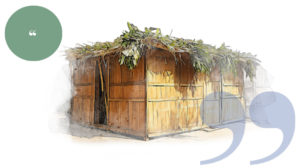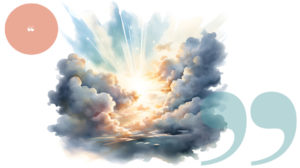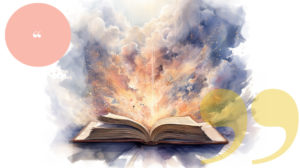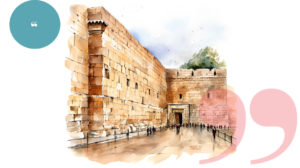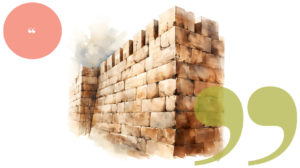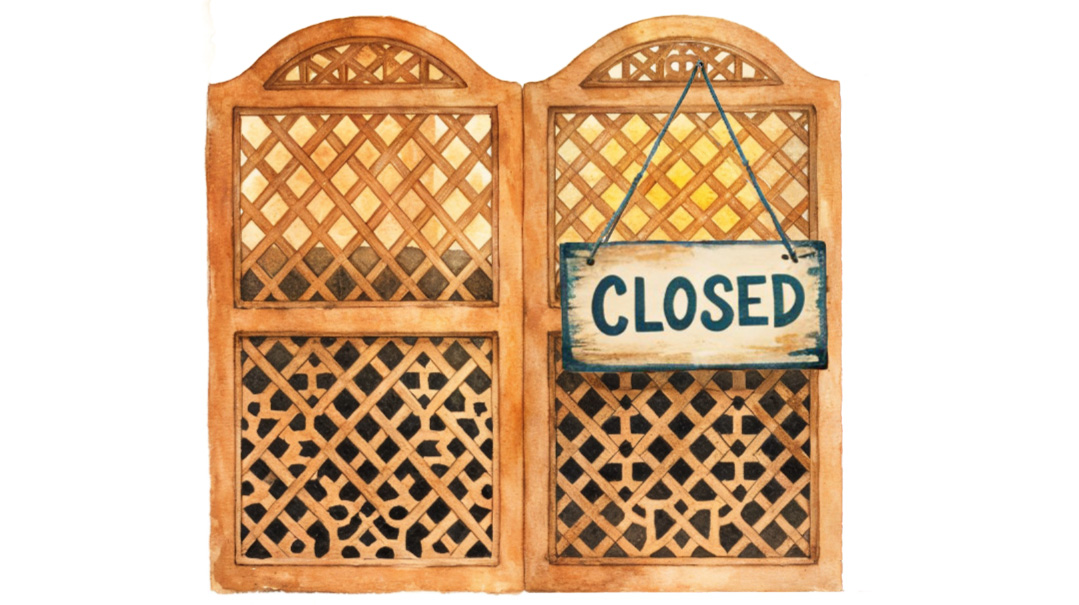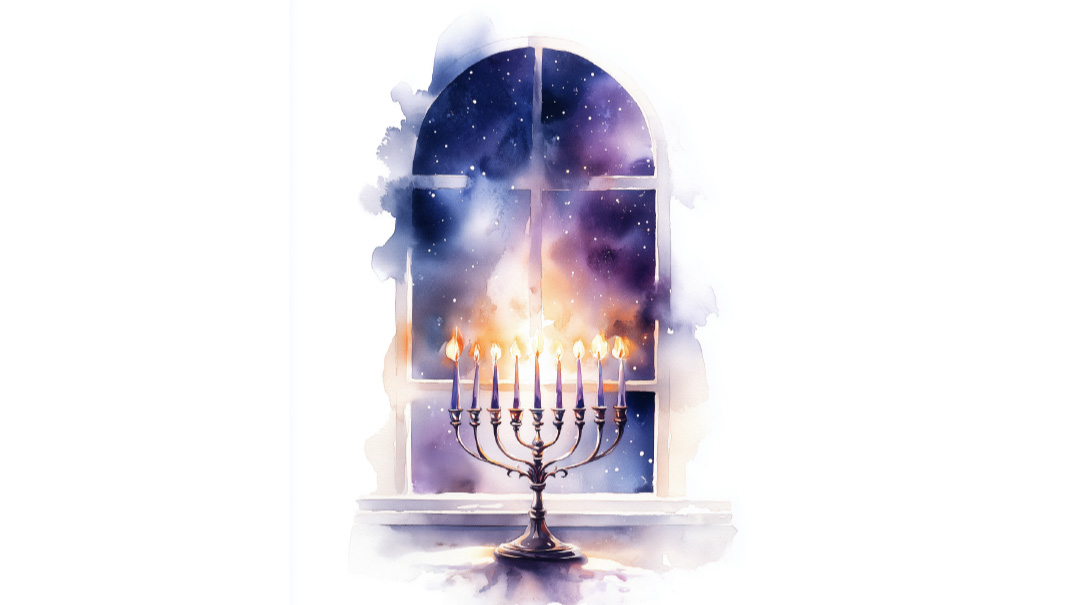To Lie in the Grave

Is there a reason the gas masks have been issued now?
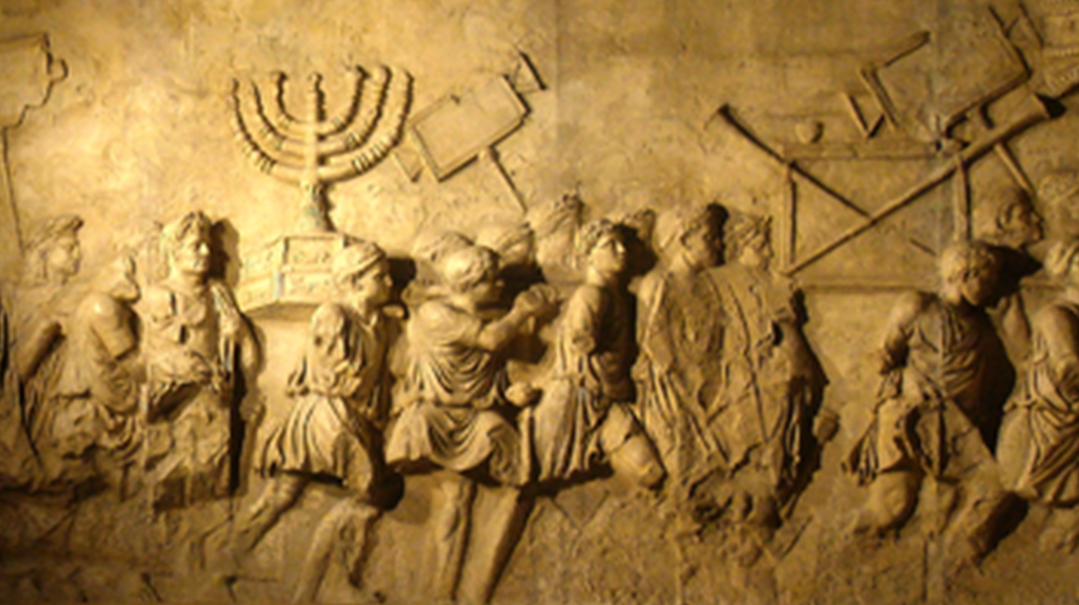
“We’re going to pick up our gas masks today,” I trill as my kids come in from day camp. They look up at me, suspicious. But the questions only begin once the boxes are slung over the stroller, and the instructional film has shown us how to prepare sealed rooms, as well as the special straw the enables us to drink even with the masks on.
My kids are distracted. I sidle up to the woman — girl, really, in charge. "Is there a reason the gas masks have been issued now?" She shrugs. “No reason.”
Of course. There doesn’t have to be a reason. Every day, life in Israel teeters on the edge.
Anxious to prevent fear or worry, I get my kids to talk and talk and talk, the whole long walk home. We discuss war and sirens and why we wear gas masks and I answer some questions I’d expected and some never dreamed of.
“Does the queen of England have a gas mask?”
“Why do they make them that yucky black color, not purple or pink?”
“What will we do in the sealed room?”
I answer and answer and answer and I paint pictures. I talk of sirens and war and how we’ll all sit together in our sealed room and it will be so comfy and cozy — we’ll play Monopoly and sculpt clay; we'll record a piano duet and paint a mural. "War camp!"
My voice was triumphant, but I brooded over a concept a social worker had told me recently. We were discussing two kids from an abusive home. “You can’t see it on them,” I said.
The social worker scribbled a note and shook her head. “That means the damage is even more severe than I had estimated.”
I didn’t understand.
“We call it normalization. The dysfunctional situation doesn’t appear to bother them because they’ve absorbed the message that it’s normal. That’s life. Abnormal has become normal. Their defense systems have changed a horrific situation into just another part of their lives that they deal with.”
Normalization. I was doing it now with my children, in an attempt to banish their fear — War Camp, indeed. I do it with myself, every day, as I hear about the horrors of our exile, of fractured relationships and the hatred that still reigns between brothers. To mourn is to open up a Pandora's box, so I pretend that it's all just part of life. But it's not, and the horrors of our exile defy my attempts to normalize them.
Teenagers with vacant eyes, gathered under the streetlamps on a Friday night. The guests I must ask to stop using their cell phones — on Shabbos. The hundreds of thousands to whom Jewish pride means supporting a comedian with a Jewish surname. The millions who don't even know that they are children of Hashem.
And then, as we travel backward in history — cellars and screams. The smell of melting metal as the burnished copper doors of the Beis HaMikdash crumple and liquefy. The ropes chafing the skin of the Jews marching down to Rome. And where it all began — the desert, under the glare of a summer sun, sweat running down faces, stinging eyes as the men dig the graves in which they will sleep that night.
It's an image I hold as I try to sleep. I imagine the men — an entire generation of husbands and fathers — who lay down in a trench of sand. What did they think of, as they lay in the shadows, millions of stars above them? What were their thoughts on this, the last night of their lives?
It’s easy to make war camp. To adapt to the reality, no matter how dysfunctional, and simply make the best of it. To make it normal.
But there's another option. To lie down in the grave. To descend to the blackness that grieves inside, the splintered dreams, the phantom lives that we hoped for but never lived. To return to the Mikdash that still burns within each Jewish soul.
Only when I lie down, face my grief, feel the agony of distance, can I paint another picture — of who and what we can be, should be.
And ultimately, this will be my consolation.
(Originally featured in Family First, Issue 301)
Oops! We could not locate your form.
